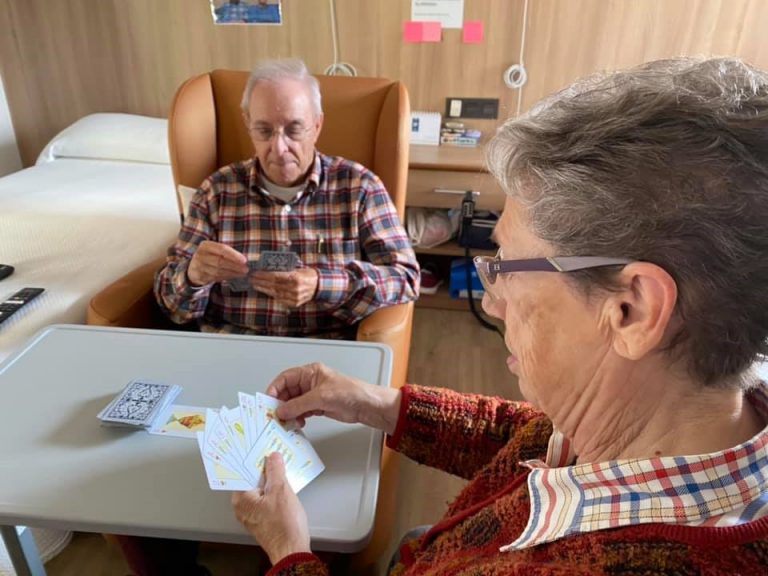Worldwide solidarity: Cartamundi playing cards and games help communities through the COVID-19 crisis
As isolation and loneliness take their toll during the COVID-19 pandemic, Cartamundi companies around the world have played to their own strength: the magic of playing. Their initiatives bring distraction, companionship and a moment of fun to the most vulnerable groups in their local communities, including the elderly, the homeless and children and families living in poverty. A little solidarity sure goes a long way.
Early April 2020, retirement homes in the province of Antwerp, Belgium found an unusual package delivered at their doorstep. What was inside? Decks of playing cards to hand out to the home’s residents—elderly people who have been vulnerable to corona and loneliness over the past few weeks.
For many of these residents, this was like a meeting with old friends: the Ace of Spades, the Jack of Diamonds, the Queen of Hearts. “A heartwarming gesture”, was a frequent reaction among the representatives of the homes.
Similar initiatives were launched from all corners of the Cartamundi family, putting in motion a worldwide wave of solidarity. Every branch or company wanted to encourage vulnerable or underprivileged groups in their own local communities.
An Christiaen, Global CSR Manager at Cartamundi, points out the importance of the local dimension: “We owe much to the places where we’re located. Whenever and wherever we can, we want to return the favor. During a crisis like COVID-19 we see it as our moral duty to provide a helping hand to those in need, based on our own strengths as a global playing cards and board games manufacturer.”
In France, for example, games were donated for distribution in retirement homes and childcare centers. In Spain, the heritage Cartamundi brand ‘Fournier’, part of the Cartamundi Group, provided patients of the temporary IFEMA hospital in Madrid, as well as their doctors and nurses with decks of cards for brief moments of distraction.
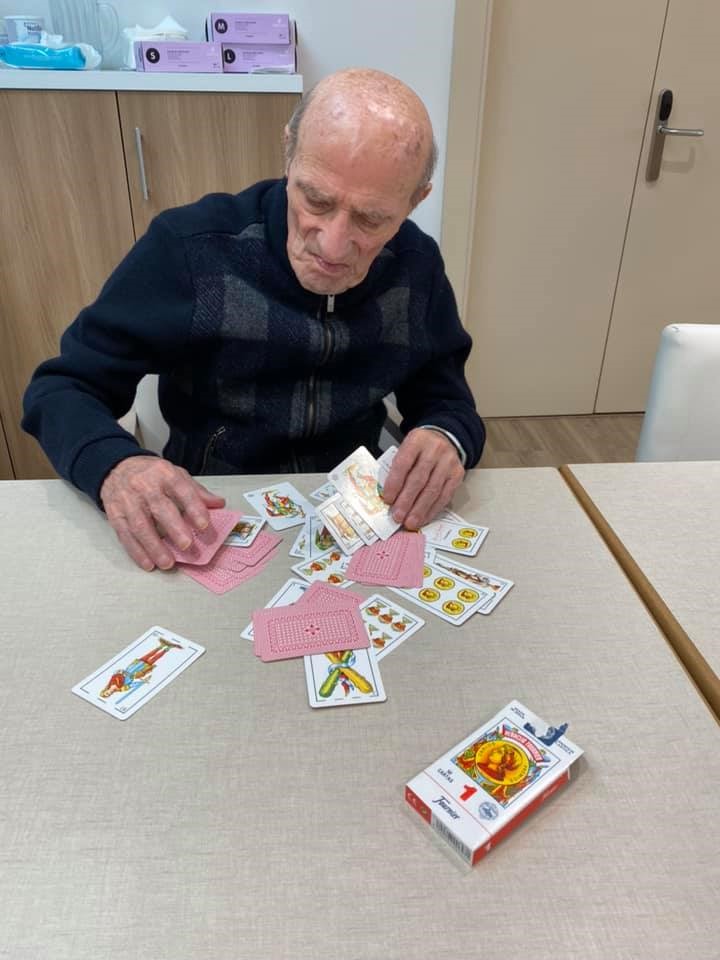
Recreation for the elderly in difficult times
Taking your mind off things in difficult times is crucial to wellbeing. Especially for those who find themselves isolated from the outside world.
Many elderly people have been deeply affected by the consequences of COVID-19. With nursing homes in lockdown, residents were unable to receive any visits from relatives. They are also a high-risk group for infection with the virus. The pandemic has struck retirement homes particularly hard. Residents who did not become infected themselves, likely saw friends and acquaintances succumb to illness.
As retirement homes went into quarantine, in-house therapies and activities had to be put on hold, putting further strain on the already threatened wellbeing of older people. With such few chances for company and conversation, these people needed some distraction. Cartamundi believed that playing cards could do the trick.
“A lot of older people remember card games from when they were young. Some never stopped playing cards. Some are even part of a card club. We decided to send them playing cards, to play with other residents or on their own,” An Christiaen says.
There are many more single-player games than you may think. Early on in the crisis, Cartamundi launched the multilingual Stay and Play platform, which offers the rules to card games from around the world in an accessible way.
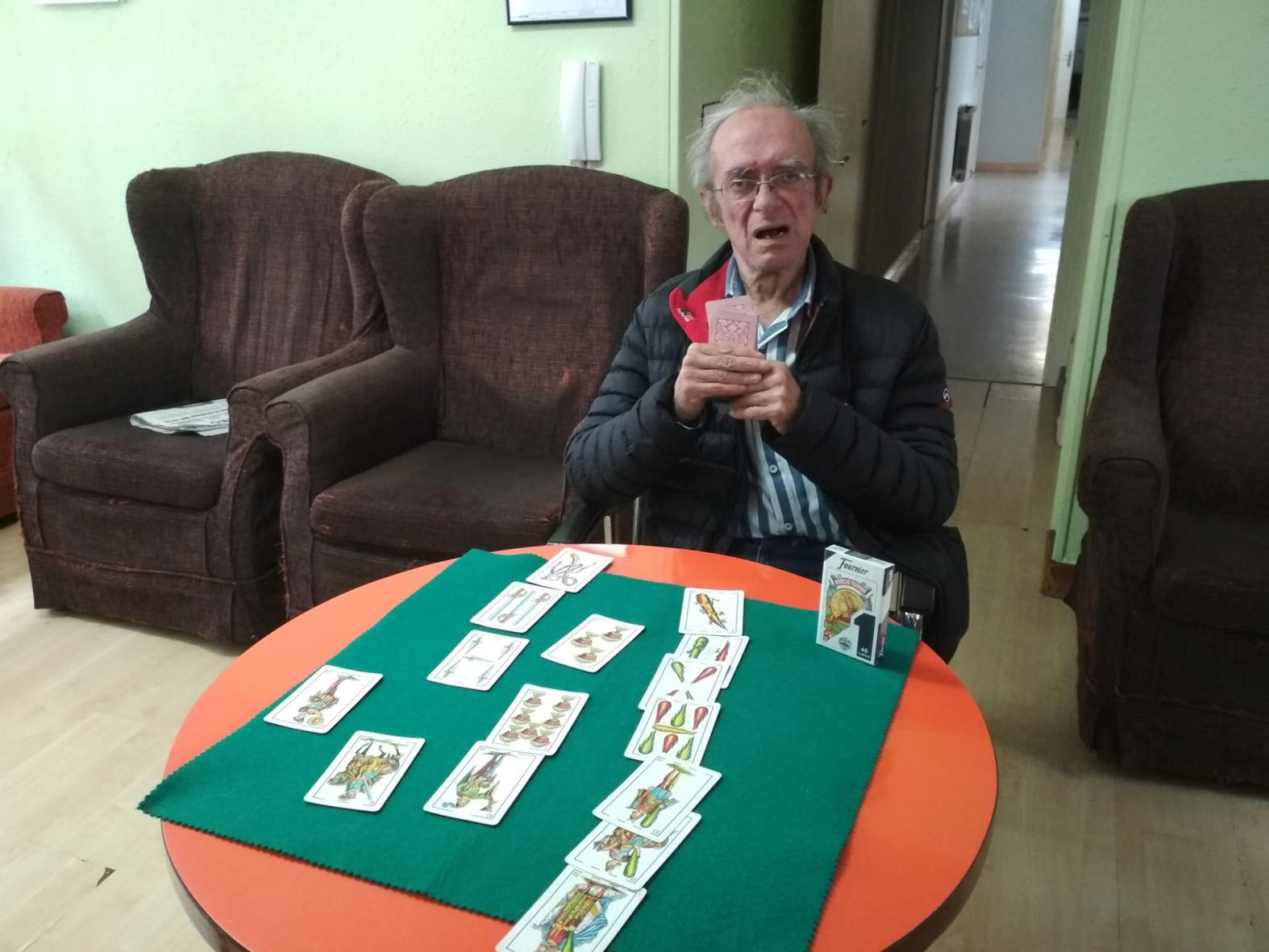
Nursing homes touched: “Thanks for thinking of our residents”
Cartamundi donated playing cards with large symbols, making them easy to read. As Cartamundi’s playing cards were being delivered to nursing homes in Belgium, ‘thank you’ emails started flooding in:
“Our residents are enjoying a game of solitaire this very moment.”
“Even more than kind words, your gift is precious and heartwarming.”
“Thanks for thinking of our residents in this difficult time.”
Some sent pictures of residents enjoying a game of cards together. Herentals, a city about 13 miles from the Cartamundi head office in Turnhout, thanked Cartamundi on their Facebook page and shared some images of residents playing in the nursing home Sint-Anna.
Kelly Huysmans, coordinator of volunteers at Sint-Anna: “It felt good to know that companies like Cartamundi are thinking about our residents. We laid out the majority of the card decks in our recreation room. Unfortunately, many of our residents don’t have the cognitive skills to play cards anymore. But they do remember certain games. And playing is still an important source of distraction for our residents.”
Zusterhof and Onze Lieve Vrouw, two nursing homes in Geel, were overwhelmed by the number of gifts they received from the outside world: chocolate, flowers and playing cards.
Ludo Gielis, general director of Zusterhof and Onze Lieve Vrouw, says: “We’re lucky to have been spared the virus in both of our nursing homes. But early on in the crisis, all activities were canceled. In the meantime, activities in small groups are allowed again. The card club has already picked up the decks and started playing.”
In Spain, Cartamundi and Fournier donated playing cards to nursing homes in the Basque Country and Castille La Mancha.
Kontxi Barriga, manager of one of the nursing homes, says: “Fournier has been with our residents for all of their lives. They spend a lot of their spare time playing traditional Spanish games such as brisca, tute, remigio or solitario, in pairs or alone. Besides, we also use playing cards as a therapy against loss of cognitive abilities and mental diseases such as Alzheimer’s.”
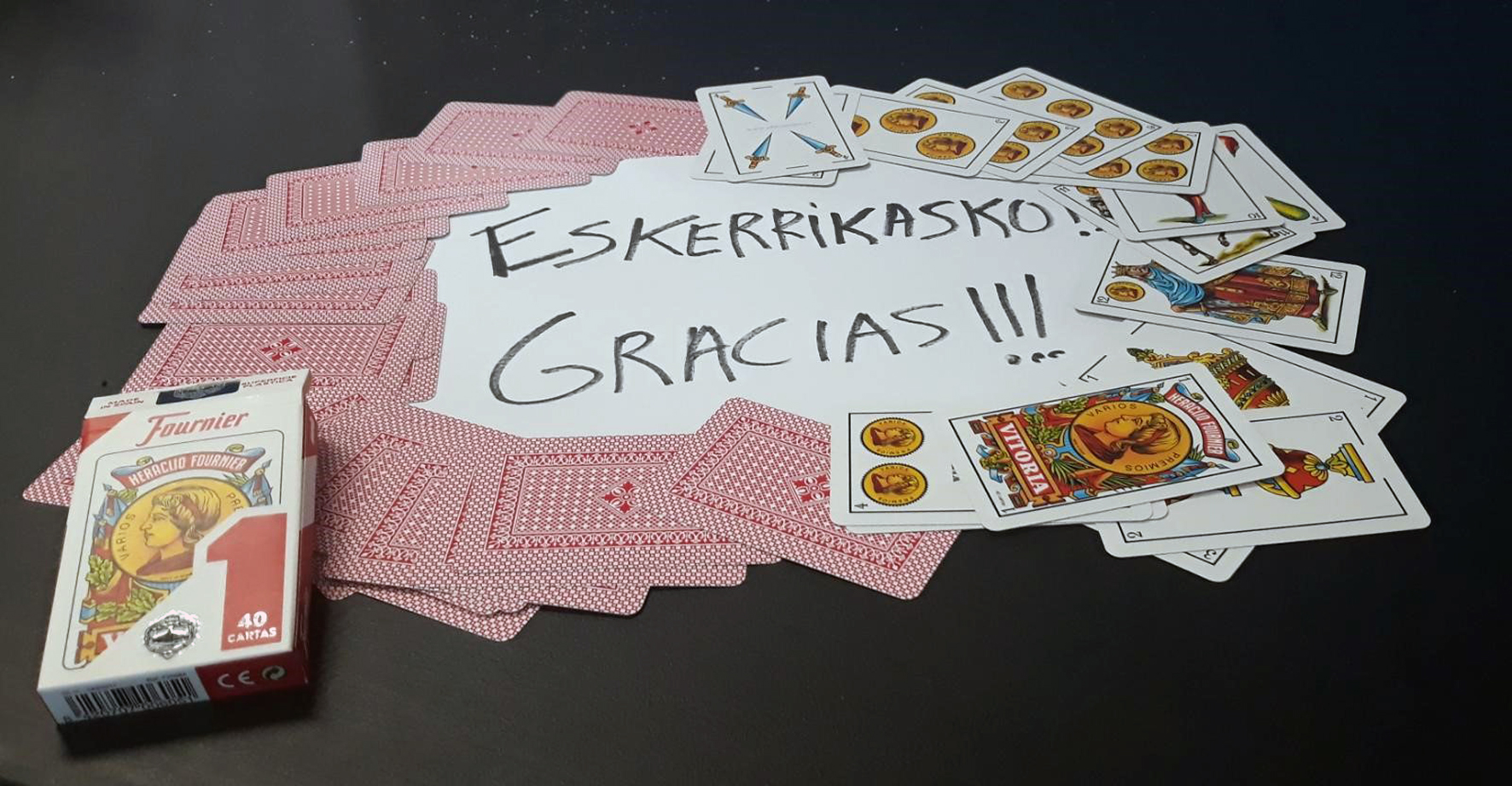
Naipes for Spanish patients and healthcare workers
Spain was among the hardest-hit countries by COVID-19. For weeks, the IFEMA temporary hospital in Madrid has been the nerve center and a symbol for the battle against the corona virus in Spain.
Almost 4,000 people infected with corona virus have passed through the makeshift field hospital in the Madrid trade fair complex. Doctors, nurses, firefighters and the military worked day and night to attend to people who were transferred to IFEMA to relieve overcrowded hospitals. At the present time, the situation has stabilized and the IFEMA hospital is currently out of service.
With the help of the charity Diversión Solidaria, Fournier donated several hundreds of its traditional playing card decks to the hospital, as well as to hundreds of doctors and nurses who stayed in a Room Mate hotel before and after their shifts. “When the workers arrived at their rooms after an intense day, at least they found a deck and a tablecloth to play solitaire,” says hotel manager Diana Serban.
According to Ana Montero, who works for Diversión Solidaria in IFEMA, hospital staff and patients were delighted to receive the decks. “One patient told me that he was making new friends in hospital thanks to the playing cards. It proves that games don’t just provide entertainment, they can help forge social relationships, even in dire times,” Ana says.
Diego Ruiz de Gauna López, Marketing Manager at Fournier, says: “Building a hospital in less than a week requires the solidarity of lots of people. We had to pitch in by offering what we’re good at: playing cards.”
Fournier has also donated more than 1,500 decks to homes for the elderly, homeless shelters and children’s homes in the Basque Country, where Naipes Heraclio Fournier is situated, and Castilla La Mancha.
Maite Marín, director of Social Healthcare at the Castilla La Mancha government, is convinced the donation will help kids in children’s homes to pass the time. “The playing cards will encourage them to stay more active and inject some fun into their days during quarantine,” Maite says.
Over in Bilbao, in the Basque Country, Sonia Gorbela works at the Bizitegui shelter for homeless people: “I’m ever so grateful to Fournier for thinking about the homeless,” she says. “These are difficult times for them. But the cards will help them to spend their days in a more pleasant way.”
Playing together works in all levels of society, according to Fournier’s Ruiz de Gauna: “Someone told me recently ‘Just playing cards with my family for an evening helped me realize I should spend more time with them from now. No screens, just a game in good company’. I thought that was a poignant thing to say.”
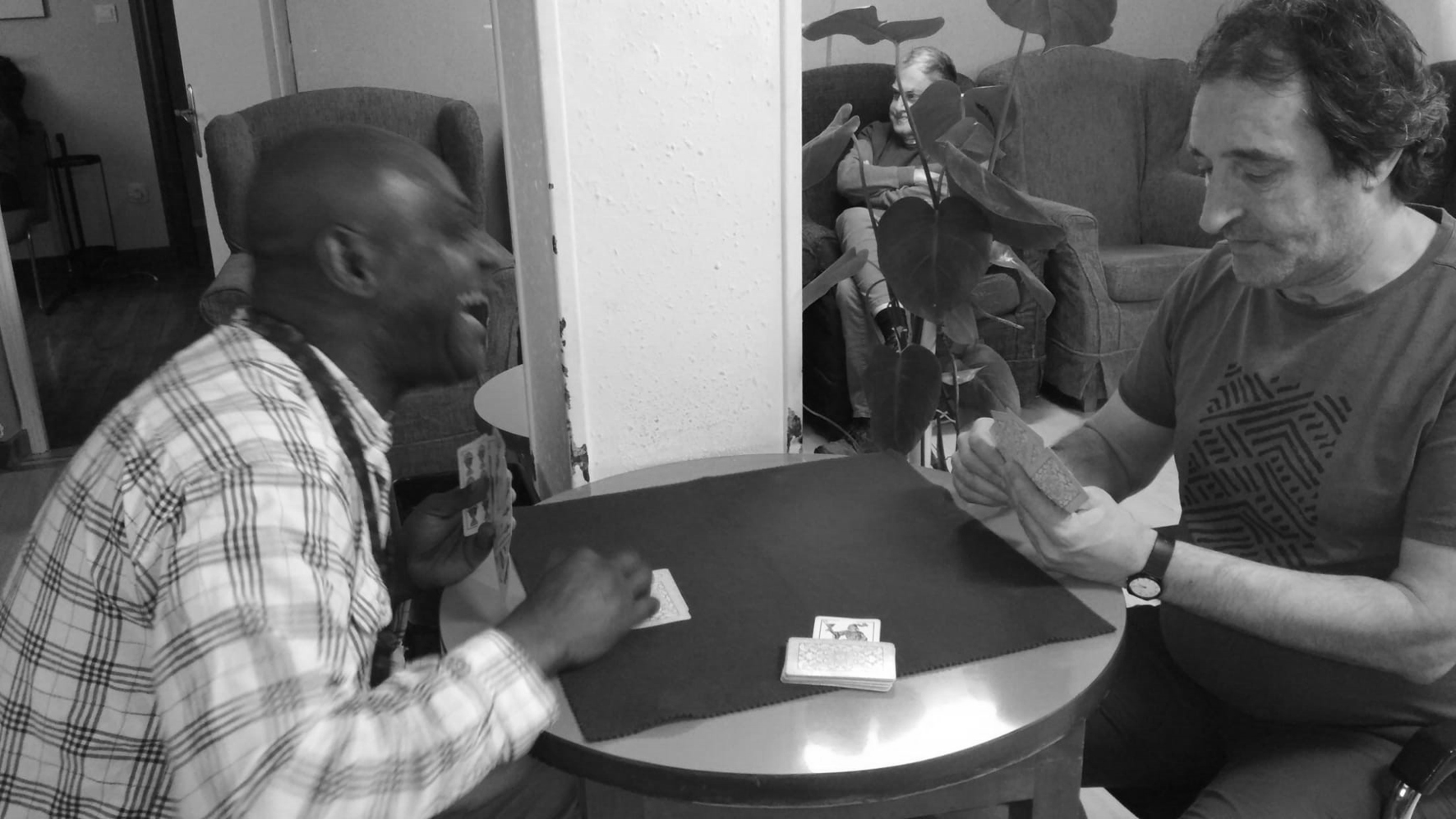
Playing brings relief to those in poverty
To bring games and playtime within the reach of vulnerable families and children, Cartamundi partnered with three social organizations: Goods to Give in Belgium, Acompartir in Spain and the Agence Don en Nature in France.
Each of these organizations aims to bridge the gap between the corporate world and the social world to fight poverty. They collect non-food products—anything from washing powder to toys—from companies and then distribute them to social grocery stores, where underprivileged people can buy them at very low prices.
An Christiaen says: “The games we donate have been phased out for sale via our usual retail channels, but they still appeal to children. We decided to give them away so everyone can enjoy our games and play. We first cooperated with these social organizations in 2019. But with the corona crisis keeping families homebound, the demand for games grew. Our companies had a look at what was in stock. Cartamundi France donated 15,000 games that were distributed all over France. Belgium and Spain made significant contributions too.”
Cartamundi France also donated 850 games to retirement homes and childcare organizations in the Grand Est region, which borders on Belgium, Germany, Luxemburg and Switzerland. In the heart of the Grand Est lies Nancy, where the factory of France Cartes Cartamundi is located.
Alexandra Juy, Director of Communications at Cartamundi France, says: “It made sense to distribute the games in this region, even more so because the region around Nancy was the first in the country to be hit hard by the virus. The Fondation Vincent de Paul will now bring our games to a dozen retirement homes and about 20 care centers for children aged 3 to 16.”
“We’re proud to have contributed in our own way and to have added to the recent wave of solidarity. For vulnerable people, the lockdown is even harder to bear. Games keep the kids entertained and brighten up daily life for these families. Just imagining the smiles on the faces of the people who received our games, is the best reward we can get”, Juy concludes.
Like other companies in the Cartamundi Group, Cartamundi France made games and educational activities available to everybody in the country in a print-and-play format. Children can enjoy Cartatoto minigames as they learn drawing skills, numbers or English vocabulary. Or they can gather around the table with their family and play Color Addict.
One worldwide team focusing on local needs
In Germany and Poland, games were given to care homes for children and the elderly and to social care centers. Cartamundi Germany also made a donation to hospitals in Altenburg, where the company AssAltenburger is located.
Across the Atlantic, Cartamundi USA offered games and cards to a center that cares for people with disabilities. Veterans of the US Army received branded military cards. Meanwhile, Copag in Brazil gave its online customers a free deck of playing cards to send to someone who can’t leave the house. The company also donated decks of playing cards to isolated people of high-risk groups. “We can always count on Copag. Together, we will win”, commented one follower on Facebook.
“We want to be at the heart of our communities and make a positive contribution wherever we can”, says An Christiaen. “After all, we need their support to be able to operate. Setting up valuable local initiatives is one of the ways we try to contribute to local communities and obtain the goodwill of the people who live there.”
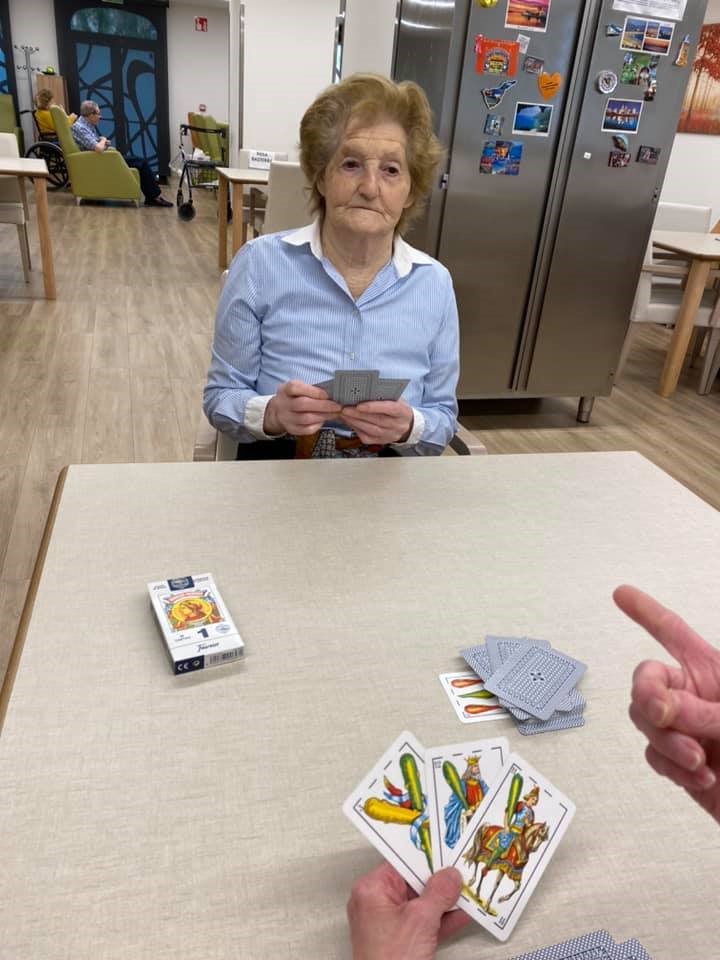
The way forward: a new foundation this fall
In the Cartamundi board room, the initiatives were well received, with board member Jean-Louis De Cartier calling it “a glimmer of light in trying times.”
Behind the scenes, a global foundation for Cartamundi has been in the making for some time and will be launched this fall. An Christiaen says: “The corona virus brings problems to the surface that have been slumbering in society for quite some time, such as loneliness among the elderly and child poverty. That’s why we want to support vulnerable people in our midst in a more structured and well-thought-out way. Our starting point will be the importance and the magic of playing together. Not just for children and families, but for everyone. The benefits of playing can help all of society.”
The Cartamundi foundation—as yet unnamed—will target three areas: education, health and wellbeing, and social mobility.
“We are determined to choose our partners wisely. We want to get to know the groups of people we’re trying to help and share our expertise,” concludes An Christiaen. “This initiative will go beyond charity in the strict sense of the word. We don’t just want to give. We want to get involved and bring people and generations together.”


